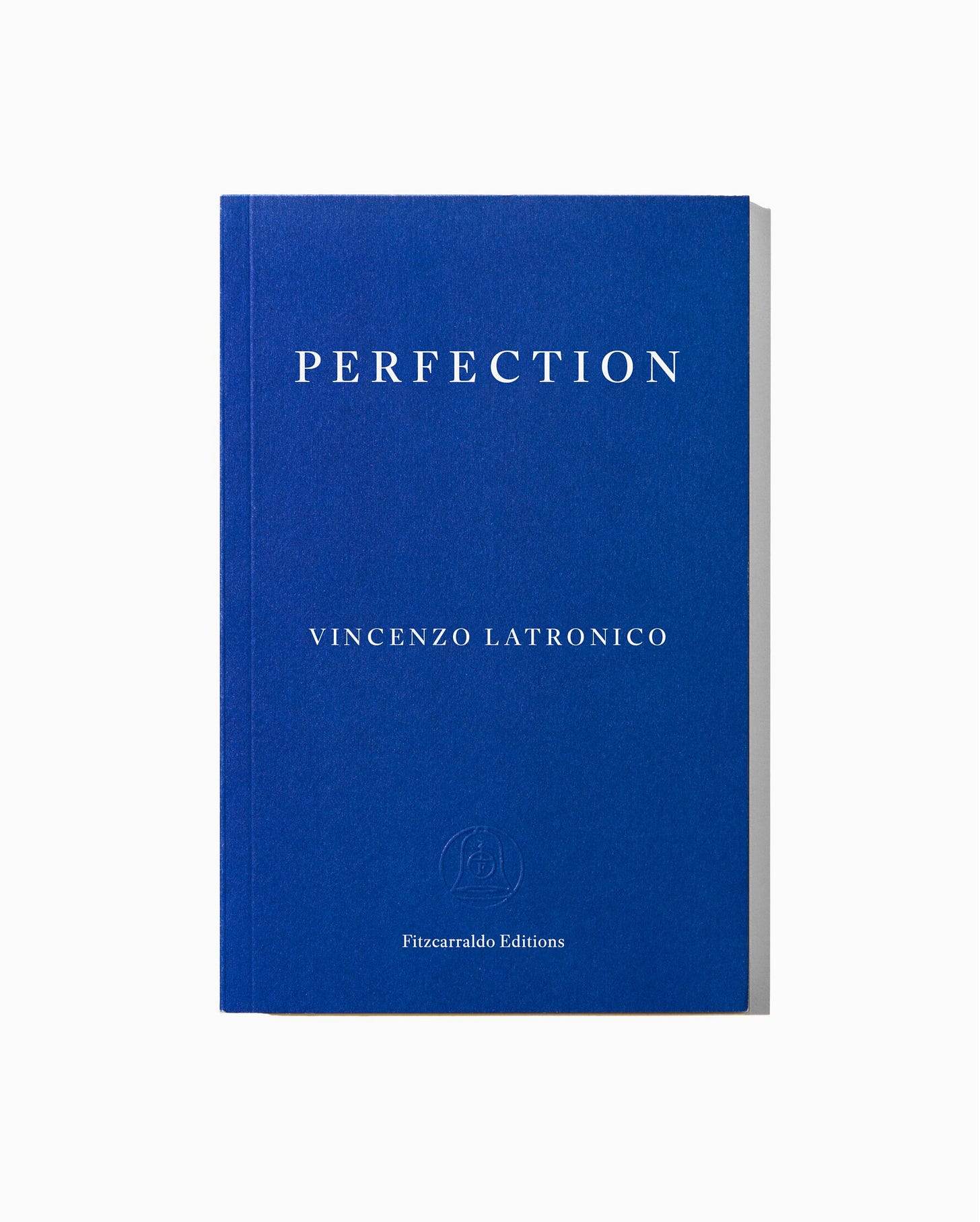An anti-vax pandemic plan
Plus, some rare good news for libraries and the new novel by Vincenzo Latronico
When I first set out to write these newsletters, one of the things I vowed I’d try and do here was to flag-up some stories that aren’t covered in the usual ENG language Italian news sources. Well, this week, one such story caught my eye that I couldn’t ignore, and it regards emergency health legislation. I know, I know. None of us really want to talk about Covid-19 and the lockdowns and all of that. I, like most, have largely buried those memories and moved on. The political consequences of that moment are, however, ongoing and can’t be ignored. This week, the Italian Health Minister Orazio Schillaci revealed a new 100-page ‘national pandemic plan’ which outlines the administration’s strategy for dealing with any future emergency. In previous policy documents, the state has defined vaccines as “the most effective” tool in combatting pandemics. Now, this wording has been revised, and protocols re-written. According to the new plan, vaccines are simply “one effective” tool for fighting pandemics. Basically, strong paracetamol then? I jest. Alas the document goes much further... In any future pandemic, the government will “not be permitted to use administrative acts or executive power to impose lockdowns.” Instead, any such measures must instead be voted through parliament (a parliament which, by the way, is currently populated by many anti-vaxxers who are right now lobbying the Ministry to absolve their kindred from numerous fines and sanctions.) I know this is contentious stuff and that some readers here may sympathise with one or two of the new proposals. Nevertheless, I think it’s important to keep the bigger picture in mind. A pandemic plan is, at the end of the day, a core state competency; a serious matter that should be co-created by doctors, lawmakers and other experts, in line with medical consensus. This is how the previous administration conceived of its Covid response, and however flawed it was (and however clumsily the democratic norms of a ‘state of exception’ were managed) I find that ethos far more reassuring than a new “plan” that has been hastily put together to appease a confused, irrational and occasionally violent minority. Yuck.

But onto more encouraging news: on 19 February the Senate passed a new decree named the “Piano Olivetti” which outlines a new programme of cultural investment across the country’s suburbs. This plan is actually one of the better proposals Meloni’s government has come up with so far; not least because it aims to foster more reading across society as a whole. Among other things, Italy is about to see a new fund of 30 million euros which will enable libraries in small comuni to purchase more books. Parallel to this, the government is also overseeing some modest investments to support the country’s print magazine sector (10m euro grants) and aspiring young booksellers (4m euro grants). Honestly, with so much going wrong in the world right now, I really don’t want to grumble that the Italian government is making more funds available for books. After years of austerity, this is actually much-needed investment. Not that there aren’t caveats. Without tax reform, many publishers, bookshops, writers, editors and so on will continue to struggle to make ends meet. And more generally, while I am perfectly happy to make the case that investing in reading is good for society, I do wonder if the Ministry has overfocused here. I know budgets are limited, but would it not have made sense to allocate some of these funds to prop up a broader range of sectors, like theatre, film and music? Just a thought…
OK, this next one’s for history geeks only: Sky Arte (ITA) has got a new 3-part series out this month about the beautiful and criminally underappreciated Lombardan town of Pavia. “La Battaglia di Pavia e altre storie” is a deep dive into the story of this small community that, despite its size, has given the world a disproportionately large number of politicians, writers, artists, poets, scientists and more. This is not your usual RAI documentary. It’s a star-studded, high budget production. The show is directed by the multitalented journalist Didi Gnocchi, and narrators include the actors Toni Servillo and Pietro De Nova. With cinematographers like Arianna Marelli and Valeria Parisiche also on board, you can be sure of a professional product. The series’s first episode aired on Monday and it explores the 1525 ‘Battle of Pavia’ in which Charles V, Holy Roman Emperor (and ruler of Spain, Austria, the Low Countries, and the Two Sicilies) confronted the French armies in one of the decisive moments in the Italian War of 1521–1526. If this sounds like niche stuff, well, it is. But you might still want to tune in. As the show’s creators argue: “this moment, more than any other, proved decisive in ousting the French from the peninsula, and opened Italy up to centuries of Habsburg rule.” If you’re interested you can stream this on NOW TV with a free account, or catch the repeat on Sky Arte this Saturday 1 March at 10.40am.
Arts & Culture: a millenial satire
Vincenzo Latronico’s novel Perfection is out in a new ENG edition this week thanks to the efforts of the translator Sophie Hughs and the good folks at Fitzcaraldo Editions. The book, which was first released in 2022 as Le perfezioni follows an Italian couple - Anna and Tom - who are “living the dream” as digital nomads in Berlin in the first decade of the 00s. Latronico, however, is more than a little scathing in his description of their situation. Yes, his characters are relatively well-off, they enjoy a good work-life balance and an elegantly decorated apartment with multiple houseplants. But they’re also existentially drained; lacking any real community or meaning. The couple experiences life, primarily, as a series of disappointments, one after the other. “Enthusiasm eluded them,” the author tells us, “always out of reach.” They sit wondering for hours about their desire, “or more a desire to desire” as they contemplate moving (back) to a smaller town. If these themes resonate, and I’m sure they will for at least a handful of you reading here, you might want to check out Chris Allnutt’s review in the Financial Times where he labels the novel “a defining picture of a generation… even if it is a frustratingly cynical one.” Buy it straight from the publisher here
A new trailer just dropped for Pupi Avati’s upcoming feature film L’Orto Americano and — seriously — you’re going to want to add this to your ‘to-watch’ list. L’Orto Americano is a black and white psychological thriller set between post-war Bologna and Mid-West U.S. The film begins in Italy where a young writer falls in love with an American nurse. A few years later, however, after he’s moved across the Atlantic to live with his beloved, our protagonist finds himself embroiled in a strange quest to find his new neighbour’s lost daughter; a quest that reveals the surreal, dark, gothic underbelly of the American capitalist dream. Avati’s film impressed critics at last year’s Venice film festival and, based on the latest footage, it’s easy to see why. Visually, this is head and shoulders above most contemporary Italian movies; and the mix of neorealist inspired photography, Hitchcockian camerawork and Robert Eggers-esque shadowplay look seriously evocative even based on this two minute clip. This one’s out in (ITA) cinemas next weekend, and the international release will follow later this year. So watch this space.
Recipe of the week: hazelnut and mushroom ragu with pasta
It’s been a while since I’ve cooked up anything by Rachel Roddy. I’ll be honest, while I do understand the international hype around her food, I personally find her recipes rather hit and miss. Roddy’s brand of cucina povera is just, well, excessively povera for my taste. Meanwhile, as far as classic Italian dishes and regional specialities go, I simply happen to prefer other writers and cooks (Emiko Davies, Letitia Clark, Marcella Hazan and Anna Del Conte to name just a few). That being said, I will concede: when Roddy is on form, she can be brilliant, as her latest Guardian recipe for “hazelnut and mushroom ragu with pasta” attests! Strictly speaking, this is not actually Roddy’s original recipe but something her friend Stefano Arturi invented based on a dizzying and confusing array of pseudo-historical Piemontese folklore tales and contradictory recipes. This may be a “big tangle” of a dish, a conglomerate of multiple sources, but who really cares? I am a sucker for both a good story (and for hazelnuts) and this does look like a lovely way to see out the winter, which is now, blessedly, leaving us behind. Click here to find out more about the dish, and of course for the recipe.
I’m Jamie Mackay, a UK-born, Italy-based writer, working at the interfaces of journalism, criticism, poetry, fiction, philosophy, travelogue and cultural-history. I set up ‘The Week in Italy’ to make a space to share a regular overview of the debates and dilemmas, innovations and crises that sometimes pass under the radar of our overcrowded news feeds, to explore politics, current affairs, books, arts and food. If you’re a regular reader, and you enjoy these updates, I hope you’ll consider becoming a supporter for EUR 5.00 per month. I like to think of it as a weekly catch-up chat over an espresso. Alternatively, if you’d like to send a one-off something, you can do so via PayPal using this link. Grazie!





